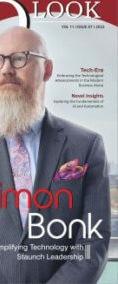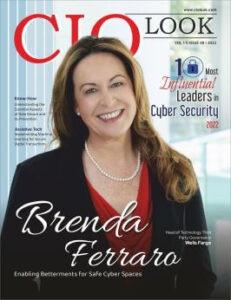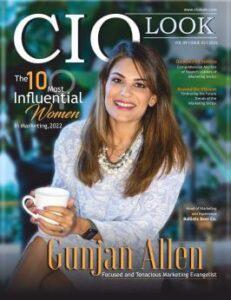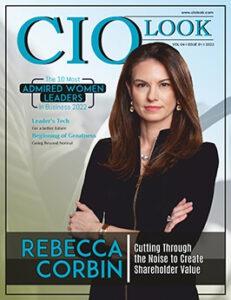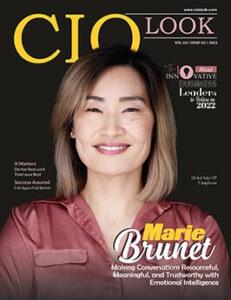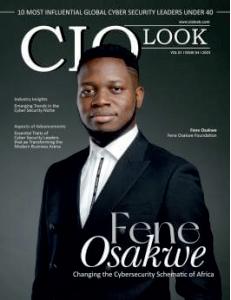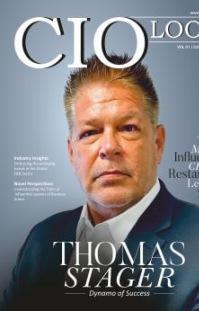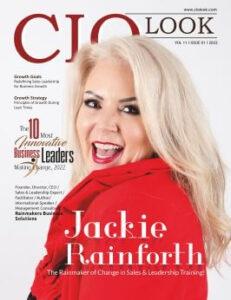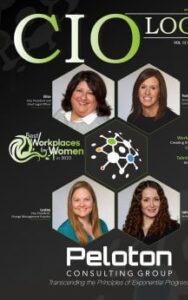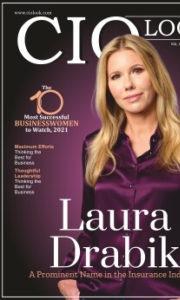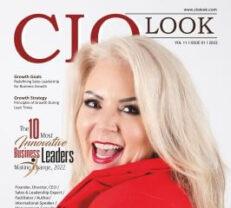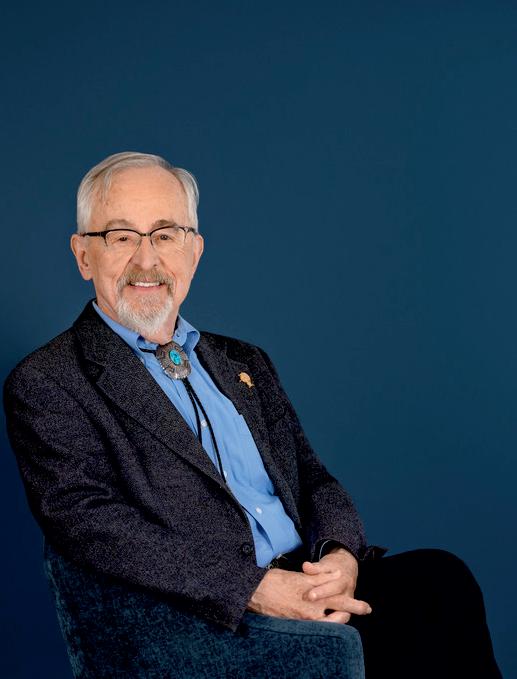
























Ineverygeneration,thereareindividualswhoseideas
domorethansparkdialogue—theyreshapeentire fieldsofthought.Theychallengetheconventional, reimaginethepossible,andofferpathwaysforwardintimes ofcomplexityandchange.Visionary10:GlobalThinkers RedefiningModernKnowledgeisatributetothoserare mindswhosecontributionsleaveanenduringimpacton howwelearn,lead,innovate,andsolve.
Attheheartofthiseditionstandsafigurewhoseworkhas influencedglobalthoughtacrossdisciplines—Professor RichardC.LarsonofMIT.Knowntomanyas“Mr QueueingTheory,”ProfessorLarsonhasdedicatedhislife totransformingabstractmathematicalprinciplesintorealworldsolutions.Hispioneeringeffortsinoperations research,urbansystems,andeducationtechnologycontinue toredefinehowinstitutionsandindustriesapproach complexhumanandstructuralchallenges.
ButProfessorLarson’sbrillianceliesnotjustinthedepthof hisknowledge—itliesinhispurpose.Witheveryproject, lecture,andinnovation,hehassoughttomakesystems morehuman-centered,moreefficient,andmoreaccessible. Whetherdesigningsmartercitiesorcreatingeducational
platformsforunderservedcommunities,hisworkreflects bothintellectualrigorandaprofoundsenseof responsibilitytosociety
Thiseditionisnotmerelyalist—itisacelebrationofideas andintentionsthatshapethefuture.Thethinkersfeatured herearenotcontentwithcontributingtothestatusquo;they aredriventoelevateit.Theyenvisionaworldwhere knowledgeisnotstaticbuttransformative—wheredata informsempathy,whereresearchfuelschange,andwhere educationbecomesalifelongbridgebetweenpeopleand possibility
InhonoringProfessorRichardLarsonandhispeersinthis specialfeature,weaimtospotlightanewstandardof visionaryleadership—onegroundedininsight,humility, andglobalrelevance.Knowledge,afterall,isnotjustwhat weknow.Itiswhatwechoosetodowithit.Andtheseten thinkersaredoingsomethingtrulyextraordinary

Managing Editor
08.
C O V E R S T O R Y
Richard Larson’s Legacy
Bridging Theory and Practice in Operations
Research with Boots-On-Ground Wisdom
18.
22.
A R T I C L E S
Leadership that Learns: The Humility Behind Educational Impact
The Power of Purposeful Learning: Where Leadership Meets Impact
Pooja M Bansal Editor-in-Chief
CONTENT
Deputy Editor Anish Miller
Managing Editor Prince Bolton

DESIGN
Visualizer Dave Bates
Art & Design Director Davis Mar�n
Associate Designer Jameson Carl
SALES
Senior Sales Manager Fa�ma A.
Manager- Media Partnerships Amira A
Customer Success Manager Nelson M. Sales Execu�ves Tim, Smith
TECHNICAL
Technical Head Peter Hayden
Technical Consultant Victor Collins
Research Analyst Eric Smith
SEO Execu�ve Alen Spencer
www facebook.com/ciolook/ www.x.com/ciolookmagazine
Email info@ciolook com
For Subscrip�on www.ciolookmedia.com CONTACTUSON
Copyright © 2025 CIOLOOK, All rights reserved. The content and images used in this magazine should not be reproduced or transmi�ed in any form or by any means, electronic, mechanical, photocopying, recording or otherwise, without prior permission from CIOLOOK. Reprint rights remain solely with CIOLOOK. FOLLOWUSON WE ARE ALSO AVAILABLE ON
Featured
AdelAldalbahi AssociateProfessorof ElectricalEngineering
AdityaBerlia Founder
JoumanaAbdo HeadofMath Department
RichardCLarson Professor
SakhaaAlsaedi PHDCandidate
ShreeyaSharma AssociateDirector ofEnrollment
KingFaisalUniversity kfu.edu.sa
VjalInstitute vjal.ai/
AlMawakebAlGarhoud garhoud.almawakeb.sch.ae
MIT www.mit.edu
KAUST kaust.edu.sa/en/
HultInternational BusinessSchool hult.edu
SteffenSommer DirectorGeneral
MiskSchools miskschools.edu.sa
SulaimanAkbar SchoolPrincipal
TarunaKhattar Headofinclusionfor Ambassadorschool
TracyCrowder-Cloe Principal
BrightLearners PrivateSchool brightlearners.ae
AmbassadorSchools ambassadorschool.com
AdelAldalbahiisadistinguishedacademicandresearcher specializinginelectricalengineering,withexpertise spanningadvancedelectronics,powersystems,and emergingtechnologies.
AdityaBerliaisanaccomplishedentrepreneur,innovator, andbusinessleaderwithastrongvisionfordriving growthandtransformation.
JoumanaAbdoisadedicatededucatorandacademic leaderwithextensiveexpertiseinmathematicseducation andcurriculumdevelopment.
Beyondresearch,Prof.Larsonisapassionateadvocatefor globaleducationreform.HeisthefoundingdirectorofMIT LINC(LearningInternationalNetworksConsortium),which fostersinnovationindigitallearningacrossemergingand underservedregions.
Sakhaa'sworkfocusesonexploringinnovativesolutions, contributingtoacademicdiscourse,andpushingthe boundariesofknowledgethroughrigorousresearchand analysis.
ShreeyaSharmaisadynamicandresults-drivenAssociate DirectorofEnrollment,specializinginstudentrecruitment, admissionsstrategies,andenrollmentmanagement.
SteffenSommerisanaccomplishedDirectorGeneralwith extensiveleadershipexperienceinstrategicmanagement, organizationaldevelopment,andoperationalexcellence.
SulaimanAkbarisadedicatedSchoolPrincipalwitha strongcommitmenttoacademicexcellence,student development,andinstitutionalleadership.
TarunaKhattarisadedicatedHeadofInclusionat AmbassadorSchool,committedtofosteringaninclusiveand supportivelearningenvironmentforallstudents.
CranleighAbuDhabi cranleigh.org
Withastrongbackgroundineducationalleadership,sTracyis committedtocreatinganinclusiveandengaginglearning environmentwherestudentsandeducatorscanthrive.
Bridging Theory and Practice in Operations Research with Boots-On-Ground Wisdom
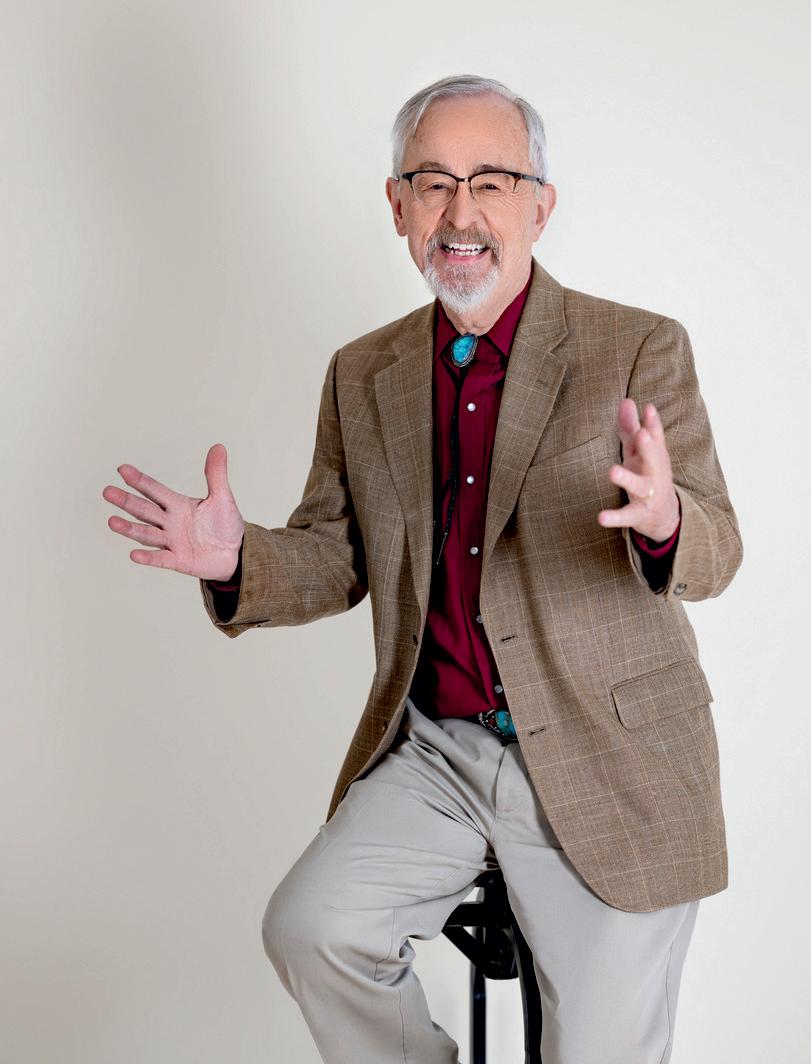

stands as an epitome of innovation and discipline in the field of operations research. With a career rooted in both theory and fieldwork,hiscontributionshavestretchedacrossdomains—fromurbansanitationanddisastermanagementtoqueueingtheory and open-source education. His name has become synonymous with bridging academic research with practical application, makingcomplexsystemsmoremanageableandunderstandableforgovernments,businesses,andthepublicalike.Asathought leader, inventor, mentor, and educator, Richard’s multifaceted journey is a testimony to how intellectual rigor and grounded experiencecancoalesceintotransformativework.
Heemergedatatimewhenoperationsresearchwasgainingprominenceasacross-disciplinaryscience.Hetooktheroadless travelledbyengaginginworkthatdidn’tjustmodelsystemsonpaperbuttouchedlivesinrealenvironments.His‘bootsonthe ground’ philosophy reshaped how researchers approached complex problems encouraging physical presence, direct observation,andinteractionwithreal-worldsystemsascriticalcomponentsofsuccessfulmodelling.
Asaprofessor,Richardmentoredmorethan30doctoralstudents,guidingthemnotonlyinacademicprecisionbutinethicaland impactfulprofessionalpractices.HiscontributionsspantheoreticaladvancementssuchastheHypercubeQueueingModeland practicalinterventionsinpublicsystems.Evenafterretirement,hecontinuestoinspirethroughpublicspeaking,interviews,and hisbook,ModelThinkingforEverydayLife.ThisarticledelvesintothemanydimensionsofRichard’slifeandlegacy—capturing themanbehindthemodels,thestrategistbehindsystems,andthevisionarybehindimpactfulchange.
“Richard’s guidance to students was always clear: knowledge is only valuable if it can be applied. “
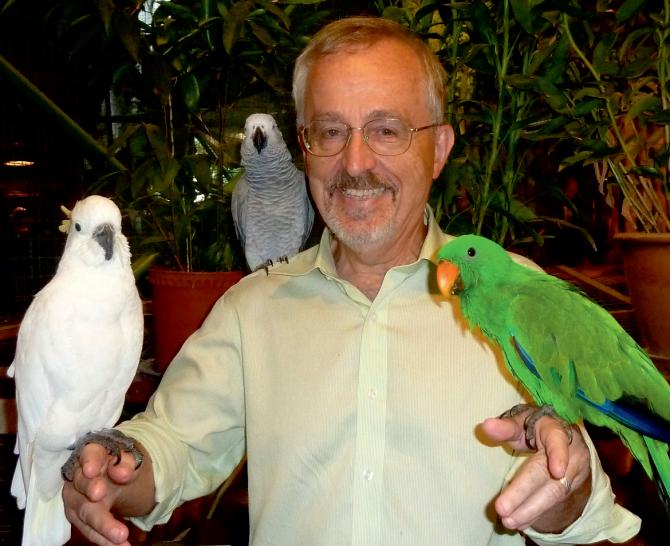
Operationsresearch,asRicharddefinesandpracticesit,isnot just about abstract problem-solving—it’s about improving howsystemsfunctionintherealworld.Frommanagingtraffic systems and optimizing emergency services to streamlining manufacturing processes and reducing customer wait times, thisdisciplineinfluencesdailylifefarmorethanmostpeople recognize.Itsfoundationalrequirementliesinmodelingand managingtheoperationalaspectsofanysystem,regardlessof itsindustry
Richard'sinterpretationofoperationsresearchsimplifiedthe complex for the average learner By offering relatable analogies—likearedtrafficlight,cancelledflights,orrunning outofdogfood hedemonstratedhoweveryday

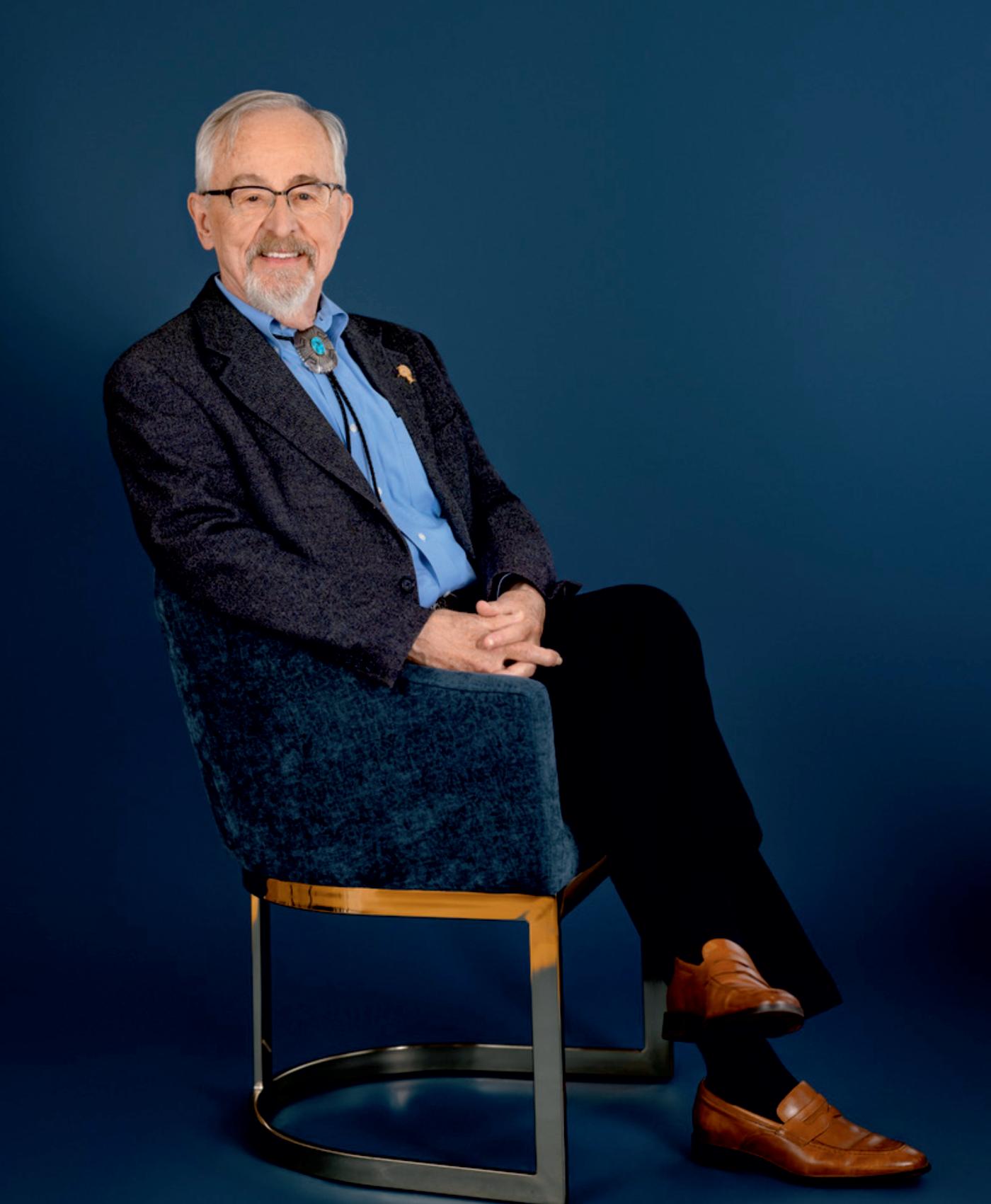
inconveniences are perfect subjects for analytical modeling. Accordingtohim,thevalueliesinstructuringsuchoperations systematicallytouncoverefficiency,predictissues,andcreate betteruserexperiences.Thisperspectivehasmadeoperations researchnotonlymoreaccessiblebutimmenselyvaluablein practicalapplication.
Richard emphasized that operational researchers must be deeply skilled in mathematics and physics, but equally important are communication skills and ethical awareness. Hebelievedthatsuccessfulresearchersarethosewhonotonly analyze data but also navigate the moral and human implicationsoftheirwork.Withthisholisticview,hehelped defineaprofessionthatnotonlysolvesproblemsbutdoesso withintegrityandclarity
Richard’sjourneybeganinNeedham,Massachusetts,where he attended high school as a focused and driven student. A naturalinclinationtowardscienceandmathematicsledhimto
environment.Thisbeliefbecamecentraltohiscareerandthe projectshespearheaded.
Richard’s professional life is the embodiment of theory translatedintoaction.Oneofhisearliestventuresintoapplied research came in the form of establishing a consulting firm withfellowresearchers.Initiallyfoundedasthenot-for-profit Public Systems Evaluation, Inc., the firm later transitioned intoafor-profitentityknownmostcommonlyasENFORTH Corporation.
Operatingforover40years,ENFORTHCorporationoffered consulting services in operations research, specializing in public system evaluations. Under Richard’s leadership, the firm employed more than 30 full-time professionals and became a conduit for integrating MIT-based academic research with real-world implementations. This fusion not only validated his research models but also ensured that the academicoutputshadatangiblesocietalimpact.
“Richard’s professional life is the embodiment of theory translated into action. “
pursue physics during his post-secondary education. Excelling in the Scholastic Assessment Test (SAT) for physics, he secured a place at the prestigious Massachusetts InstituteofTechnology(MIT),wherehisintellectualjourney flourished.
His love for problem-solving and modeling operational systemswaskindledduringtheseearlyacademicyears.The seed of operational research, particularly its application in physicsandsystemsthinking,wasfirmlyplantedatMIT He gravitated toward understanding how complex systems behaved and how these could be controlled or optimized. Over time, this interest evolved into a passion for using mathematics and probability theory to explain and improve—theworld’soperations.
His time at MIT solidified not just his technical capabilities but also his educational philosophy He believed that true understandingcomesnotonlyfromclassroomsandbooksbut from observing and engaging with the system in its native




In addition to his consulting and academic work, Richard is widely celebrated for his contributions to open-source learning. Recognizing the need for quality STEM education in underserved regions, he launched the MIT BLOSSOMS initiative—a platform that combines educational videos, classroom exercises, and collaborative learning environments.
Through BLOSSOMS, Richard and his team developed 86 interactiveSTEMlessonstailoredforhighschoolstudents,all ofwhicharepubliclyavailableonYouTube.Theseresources have revolutionized the way science and math are taught around the globe, offering educators and students access to high-quality instructional content free of charge. This platform, one of the first of its kind, exemplifies Richard’s commitmenttodemocratizingeducationthroughinnovation.
The impact of BLOSSOMS has been profound. Beyond classroom walls, the initiative fostered global academic partnerships and created a sustainable model for knowledge sharing For Richard, this endeavor was not only a professional milestone but also a deeply personal achievement—areflectionofhisbeliefthatknowledgemust besharedtobetrulypowerful.
As co-director of the MIT Operations Research Center, Richard played a critical role in shaping one of the world’s leading OR institutions. Representing the MIT School of Engineering alongside colleagues from the Sloan School of Management, he helped establish a culture of interdisciplinaryexcellence.Thecenter’sworkunderhiscoleadershipattractednationalandinternationalaccolades,and itsgraduatesbecamerecognizedleadersinthefield.
Richard’sguidancetostudentswasalwaysclear:knowledge isonlyvaluableifitcanbeapplied.Heurgedthemtostepout of their labs and classrooms, visit work sites, speak with workers, and observe the minute details of system behavior. He encouraged his students to anticipate real-world messiness—smellybootsandall—andembraceitasthepath tounderstanding.
One of Richard’s favorite pedagogical examples was Newton’s Law of Motion.To truly understand “F = ma,” he urgedstudentstofeeltheforce—literally.Instructingthemto accelerate a car on a straight, empty road allowed them to internalizetheconcept,makingabstracttheoryphysically

relatable. This metaphor captures his overall approach to learning:immersive,applied,andexperiential.
AhallmarkofRichard’sworkishisfocusonthepsychology of operations, particularly queueing systems. He often said, “It’snotthewaitthatirritatespeople,it’stheperceptionofthe wait.” By understanding this, he influenced how businesses andinstitutionsdesignexperiences.
Onesimplebutpowerfulexamplewashissuggestiontoplace mirrors near elevators. Instead of reducing actual wait time, themirrorreducedcomplaints.Peopledistractedthemselves bycheckingtheirappearance,thusalteringtheirperceptionof timespentwaiting.It’sthiskindofinsight—smallinscalebut immenseinimpact—thatdefinesRichard’sgenius.
Such psychological considerations underscore the importance of user experience in systems design. Richard emphasized that good operational design must not only be
His legacy also includes the development of several critical modelsandtheories,suchastheHypercubeQueueingModel, the Queue Inference Engine, and advancements in Optimal Location Theory His research spanned disaster analysis, home energy management, and urban infrastructure—fields thattouchmillionsoflives.
Now retired from MIT, Richard continues to share his knowledge through his book, Model Thinking for Everyday Life: How to Make Smarter Decisions, published by INFORMS This work is a culmination of his lifelong philosophy applying model-based thinking to daily choices,whethermundaneorlife-changing.
He remains active in public education, media appearances, and thought leadership, ensuring that the foundational principles of operations research reach newer generations. His message to young professionals is simple yet profound: follow your intellectual passions, remain grounded in real-
“Richard mentored more than 30 doctoral students, guiding them not only in academic precision but in ethical and impactful professional practices. “
mathematically sound but emotionally intelligent. This dual perspective enriched his research and made his solutions morehuman-centeredandenduring.
Mentorship
While Richard’s theoretical innovations are significant, he considers his mentorship of graduate students his most meaningful accomplishment Over 30 doctoral students completed their research under his supervision, many of whom have gone on to lead successful academic or professionalcareers.
Hisstudentsweren'tmerelyadvised—theywerechallenged, supported, and inspired He taught them how to think critically, act ethically, and communicate effectively His mentorship was about more than academic guidance; it was about shaping future leaders who understood the value of humility,persistence,andcuriosity.
world experiences, and never underestimate the value of observation.
Richard’scareerembodiesauniqueblendoflogic,creativity, empathy,andpersistence.Histeachingsgobeyondoperations research—they represent a framework for how to live a purposeful and impactful life. As operations continue to evolve in complexity, his ideas will remain foundational in shapingthesystemsoftomorrow




Intherealmofeducation,leadershipisoftenseenthrough the lens of authority, decision-making, and visionary planning. But the most impactful leaders in education share a less heralded quality—humility They are not only leadersoflearning,butleaderswholearn.
In an era defined by change, complexity, and cultural shifts, adaptive, humble leadership is not just ideal—it’s essential. The educators who make the greatest difference aren’t those who claim to know everything, but those who are open to rethinking what they know This is the paradox of power in education:thosewhoarewillingtolearnbecometheonesbest equippedtolead.
In many sectors, leadership is associated with certainty, expertise, and assertiveness In education, however, the landscape is more nuanced. Leading schools, districts, or academicsystemsmeansengagingwithdiversestakeholders, evolving pedagogy, emotional labor, and unpredictable challenges. It demands agility, reflection, and above all—humility.
Humbleeducationalleaders:
• Askmorequestionsthantheygiveanswers
• Welcomefeedback,evenwhenit'suncomfortable

• Reflectopenlyontheirownmistakesandblindspots
• Createspaceforcollaborativeproblem-solving
• Stay curious about students' needs, teachers’ perspectives,andsocietalshifts
This kind of humility is not weakness—it is a strategic strength.Itenablestrust,buildspsychologicalsafety,andsets a tone where continuous improvement is a shared journey ratherthanatop-downdirective.
Educational leadership is not a destination; it is a process of becoming.Andthatprocessrequiresintentionallearning—of policies,ofpeople,ofpedagogies,andofone’sself.
Whether it’s navigating equity gaps, integrating technology, orrespondingtostudentmentalhealthneeds,thechallenges facing today’s schools can’t be met by rigid models or past knowledge alone. They require leaders who are lifelong learners those who attend seminars not to showcase credentials, but to evolve thinking. Who read not just to confirmtheirviews,buttochallengethem.
Suchleadersoftenadoptthemindsetofateacher—listening, observing, adapting, and most importantly, staying open to transformation.
When leaders model humility and learning, it ripples throughout the institution. Teachers feel safe to innovate.

Students feel encouraged to question.And the entire culture beginstoshiftfromperformancetoprogress.
Here’showhumbleleadersbuildsuchenvironments:
• Leadwithtransparency,acknowledgingwhattheydon’t know
• Celebratecollectivewins,notjustindividualbrilliance
• Normalize failure as a part of growth, not a source of shame
• Encouragestafftochallengenormsandproposechange
• Democratize learning, making room for bottom-up insights
The result? A learning organization where growth is everyone's responsibility, and success is redefined as shared advancement.
One of the most powerful—yet underappreciated—acts of educational leadership is listening. Whether it's a student voicingfrustration,ateacherexpressingburnout,oraparent offeringconstructivecriticism,activelisteningrevealstruths thatdataoftenmisses.
Humbleleaders:
• Holdlisteningcirclesandopenforums
• Invitefeedbacknotjustannually,butcontinually
• Actvisiblyontheinputtheyreceive
• Makepeoplefeelseenandheard,notjustevaluated
In doing so, they create communities grounded in mutual respectandresponsiveness—afoundationforlastingimpact.
Consider a principal who, after seeing declining student engagement, invites students to co-design elective courses. Or a superintendent who pauses a major policy rollout after receivingcriticalteacherfeedbackandconvenesataskforce torethinktheplan.Thesearen’tsignsofindecision—they’re examplesofhumbleleadershipinaction
Such stories underscore a critical insight: Leadership is notaboutalwaysbeingright.It'saboutdoingright,even whenitmeanschangingcourse.
Ofcourse,humilityisn’talwayseasytopractice—especially insystemsthatrewardcertaintyandstatus.Leadersoftenfeel pressure to project confidence, maintain control, or conform to rigid expectations. Humble leadership can be misinterpretedasindecisivenessorvulnerability
But the reality is: the future of education is too complex for any one person to have all the answers. The bravest thing a leadercansayisoften,“Letmelearnmore.”
It takes courage to pause. To admit gaps. To prioritize listeningoverleading.Yetthosewhodosoarenotonlybetter equippedtoadapt—theyarebetterpositionedtoinspire.
Conclusion: The New Hallmark of Educational Excellence
In an age of transformation, educational excellence is no longer defined solely by test scores or administrative accolades. It is defined by empathy, agility, inclusion, and growth. And those qualities stem from leaders who are as committedtotheirownlearningastheyaretothelearningof others.
Leadershipthatlearnsisleadershipthatlasts.Itisgroundedin humility, guided by purpose, and fueled by the belief that every person—regardless of title—has something to teach andsomethingtolearn.
Byembracinghumility,today’seducationalleadersdon’tlose authority—theygainauthenticity Andindoingso,theydon’t justimproveschools.Theytransformlives.




In a world flooded with information, advancing technologies,andshiftingsocietalneeds,educationmust bemorethancurriculumdelivery Itmustbeintentional. Purposeful learning—the kind that empowers, inspires, and transforms—is increasingly seen not as a luxury, but as a necessity And at the heart of this transformation lies leadership that is not only strategic, but deeply aligned with purposeandimpact.
When education becomes a mission—not just a system—it movesbeyondcomplianceandstandardization.Itbecomesa driverofsocialmobility,innovation,andcivicresponsibility But this transition doesn’t happen in isolation. It requires leaderswhochampionmeaningovermechanics,visionover routine,andoutcomesthatresonatebeyondtestscores.
Purposeful learning goes beyond the acquisition of knowledge or mastery of skills It cultivates a deeper connection between what students learn, why they learn it, andhowitrelatestotheirlives,communities,andfutures.It emphasizes relevance, reflection, and real-world application—connecting education to identity, values, and globalcitizenship.
Thiskindoflearningfuelsmotivation,fostersresilience,and enhanceslong-termretention.Itcreateslearnerswhoarenot justcompetent,butcurious;notjustskilled,butempoweredto leadwithconscience.

Educational leaders principals, superintendents, policymakers, and mentors have a critical role in embedding purpose into the DNA of schooling Their influenceshapesnotonlypoliciesandpriorities,butalsothe cultureandexpectationsthatdefinelearningexperiences.
Apurposefulleader:
• Setsacompellingvisionrootedinvaluesandcommunity needs
• Connects academic goals to real-world challenges, creatingrelevance
• Empowers educators to teach with autonomy, innovation,andempathy
• Listens actively to students, giving voice to their aspirations
• Evaluatessuccessnotonlybygrades,butbythegrowth ofthewholeperson
These leaders act as architects of learning environments whereeverylessonmatters,notbecauseitchecksabox,but becauseitcontributestosomethinggreater

One of the key challenges in modern education is the prevalence of compliance-based approaches—rigid metrics, standardized testing, and box-ticking exercises While accountability is necessary, it must not come at the cost of authenticengagementandhumanconnection.
Purposeful leadership flips this paradigm. Instead of asking, “Have we met the requirement?” it asks, “Have we made a difference?”This shift fosters a culture of commitment over control—where students strive not because they must, but becausetheybelieve.
When learning is aligned with purpose, students don’t just absorb information—they engage with it, question it, and apply it. They begin to see themselves as agents of change, capable of shaping their own futures and contributing to the world.
Educationalleaderscanamplifythisby:
• Integrating project-based learning and community engagement
• Encouragingstudent-ledinitiativesandservicelearning
• Supporting cross-disciplinary exploration tied to real issues—likesustainability,health,andtechnology
• Creatingsafespacesforethicaldebates,criticalthinking, andcivicaction
Inpurposefulclassrooms,studentsdon’task,“Willthisbeon thetest?”—theyask,“Howcanthissolveaproblem?”
Teachersarenotjustconveyorsofcontent;theyarementors, motivators, and meaning-makers. But to guide purposeful learning,theytoomustbesupportedwithclarity,autonomy, andinspiration.
Purpose-drivenleadersinvestin:
• Collaborative planning time to align lessons with realworldrelevance
• Ongoingprofessionaldevelopmentfocusedonpurposebasedpedagogy
• Recognitionandstorytellingtoshareimpactfulteaching practices
• Emotional and moral support, especially in times of changeandchallenge
When educators are empowered to teach with purpose, they createclassroomsthatignitelifelongcuriosityandcharacter development.
Traditional success metrics—grades, graduation rates, and standardized assessments only tell part of the story. Purposefulleadershipencouragesabroaderlensofimpact:
• How has learning shaped students’ sense of self and purpose?
• Are students more equipped to solve complex, global problems?
• Dograduatesfeelpreparednotjustforjobs,butforlife?
• Howareschoolsimpactingtheirlocalcommunities?
Trueimpactliesintransformation,notjusttransaction—and that’sastoryonlypurposefullearningcantell.
Conclusion:PurposeastheCompassforChange
Intimesofuncertaintyandcomplexity,educationmustoffer more than knowledge—it must offer meaning. The future belongstothosewhocanleadwithvision,communicatewith empathy,andinspirechange.That’swhythemostimpactful schools and systems are those grounded in purposeful learning,ledbyindividualswhobelievethateducationisnot justpreparationforlife—itislife.
Purposeful leadership doesn't just prepare students to succeed—ithelpsthemunderstandwhysuccessmatters,who itserves,andhowtoshapeitresponsibly
Because when leadership meets purpose, learning becomes more than a system. It becomes a movement—and one that transformsnotjustschools,butsocieties.













